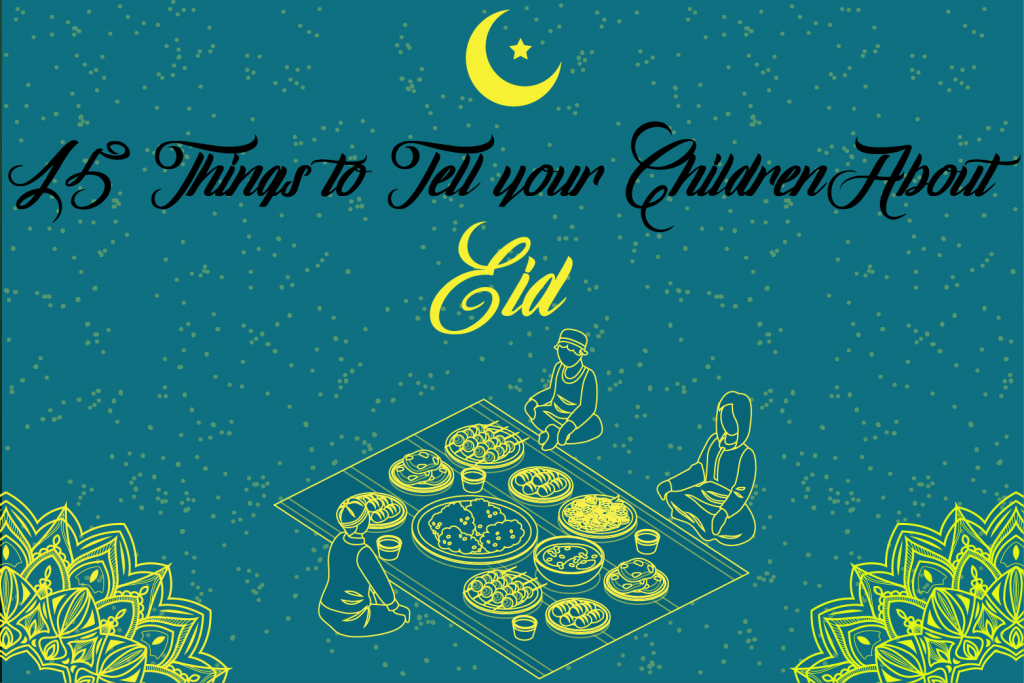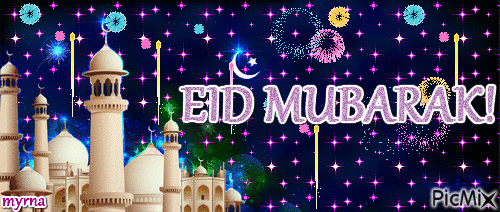15 Things to Tell Your Children About Eid
Eid Mubarak to all of you!
As Muslims around the world bid farewell to the fasting month of Ramzaan, they also prepare for the festival of Eid -ul-Fitr, which may be celebrated either on this weekend or earlier next week, depending on the sighting of the new moon.
We know that this year Eid is going to look and feel different and it is probably going to be hard for many. The pandemic has resulted in the suspension of Eid prayers at mosques, as well as any outdoor festivities. If anything, this is the year for all of us to send our love, virtual hugs and strength to our Muslim friends & family.
As mentioned in our guide to talk religion with your child, festivals are a great time to help your child learn, understand and participate in the culture around them. So on the occasion on Eid-ul-Fitr, Sawleha, our colleague, helped us put together 15 interesting and simple facts about the festival & its cultural history that you can tell your child.
1. The literal meaning of the term ‘Eid’ is celebration or festivities. There are two days dedicated to Eid or celebrations in an Islamic calendar. These are Eid-ul-Fitr and Eid -al- Adha. They were appointed by the Prophet Muhammad.
2. Muslims follow the lunar calendar. This means that a month in the calendar starts with the new moon. One cycle of the moon is treated as one month.
3. The upcoming Eid -ul -Fitr is celebrated on the first day of Syawal, which is the 10th month in the calendar. Ramzaan in Persian or Ramadan in Arabic is the 9th month in the Islamic calendar.
4. It is believed that the Quran was revealed to the Prophet Muhammad in the month of Ramzaan thus making it the holiest of all months.
5. Throughout the month of Ramzaan, Muslims around the world undertake a strenuous fast between the hours of sunset and sunrise. A lot of time is meant to be spent in spiritual self-reflection – studying the Qur’an and connecting with Allah.
6. Kids before puberty, sick people, pregnant women, breast feeding women, travelers, menstruating women and the elderly are not expected to fast.
7. The meal eaten before sunrise is called Suhoor while the meal with which the day long fast is broken after sunset is called Iftar.
8. Every Muslim family is expected to make a charitable donation called Zakat-Al-Fitr. This donation is distributed among the less privileged to help them celebrate the festival with equal joy and happiness. This is also seen as a good opportunity to talk to children about acts of kindness.
9. After a full month of fasting and dedication, Muslims around the world await the physical sighting of the new moon which marks the end of the 30 day fasting and the beginning of the day- long celebration of Eid -ul- Fitr.
10. As the start of the celebration is dependent on the moon, the festival is celebrated at different times and sometimes even different days across the globe. In India, the new moon is generally seen a day after it is seen in the Middle East. So Indians get in touch with their counterparts in those countries to kill the anticipation.
11. Eid-ul-Fitr is also called the ‘Smaller Eid’ or ‘Sweet Eid’.
12. Common Eid greetings are Eid Mubarak or Happy Eid.
13. Fasting on the day of Eid is prohibited.
14. Eid is a time to come together with family and loved ones to enjoy everyday blessings. Exchange of gifts with friends and family is a norm. Children and young people in the house get Eidi, which is commonly a gift of money.
15. Eid is not celebrated by Muslims only. In most parts of the world, many non-Muslims visit the homes of their Muslim friends to join in the celebrations by indulging in food and exchange of gifts.










Good
Thank you Thomas for the comment. If you like it, do share it.